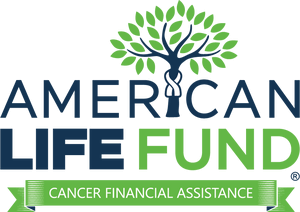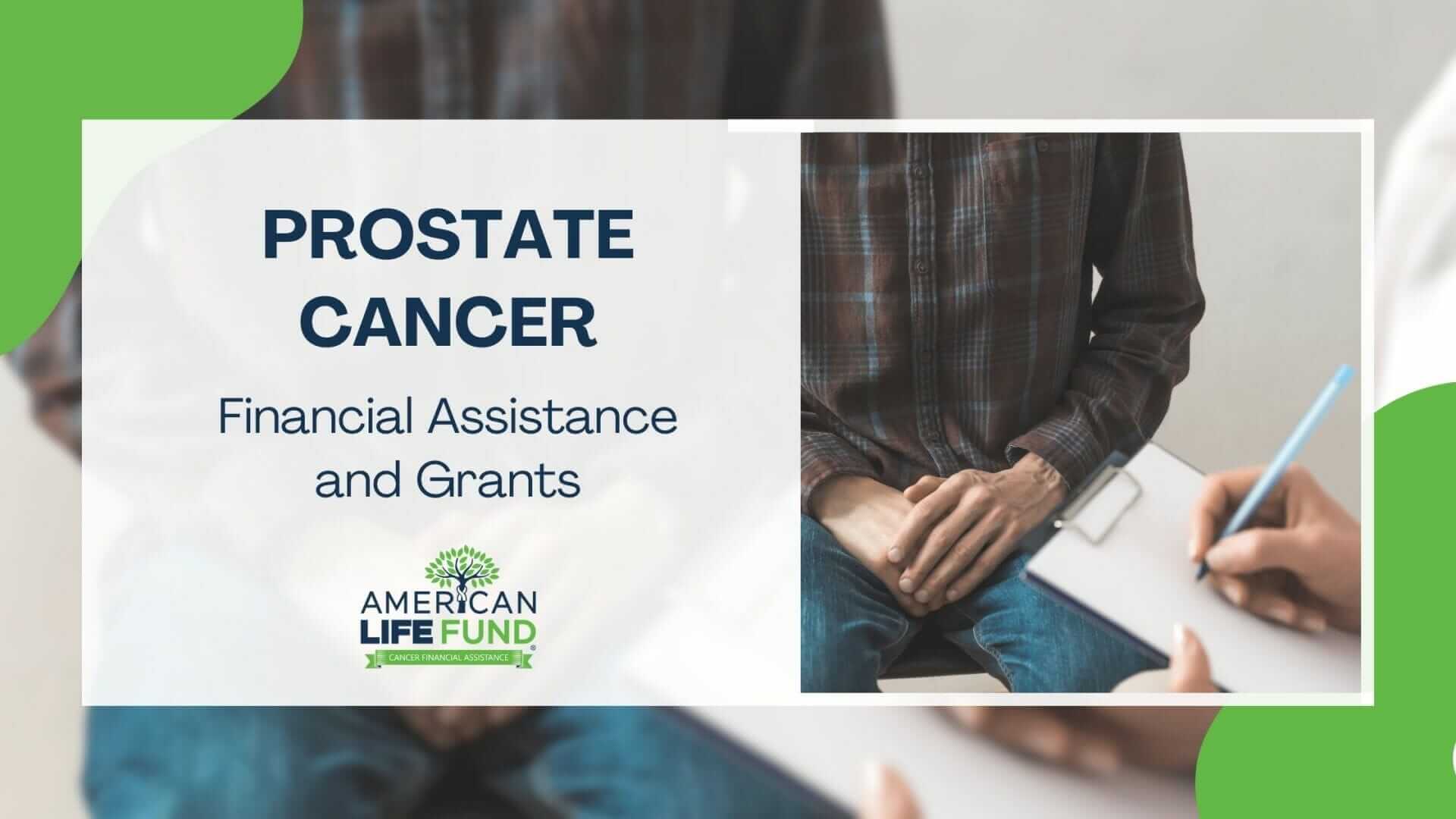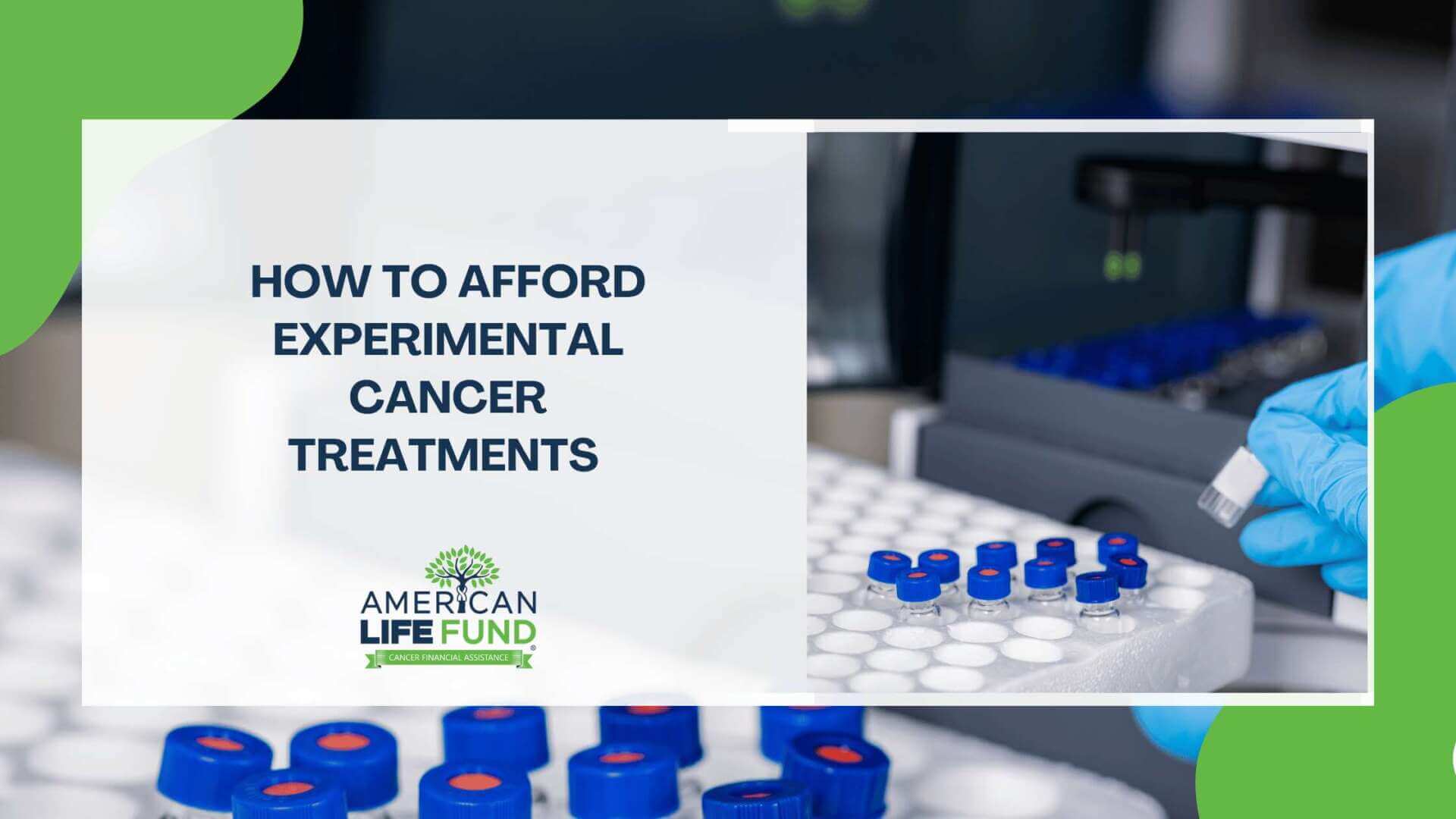Key Takeaways
- Prostate cancer treatment can be expensive, but help is available.
- Viatical settlements provide immediate funds by selling life insurance policies.
- The Patient Advocate Foundation (PAF) offers co-pay relief for medical expenses.
- Family Reach provides financial assistance for medical and living costs.
- Government programs like Medicaid, Medicare, and SSDI offer financial support for eligible patients.
Facing a prostate cancer diagnosis can feel overwhelming – not just emotionally, but financially, too. The costs of treatment, medications, and ongoing care can quickly add up, leaving many patients and families searching for ways to manage expenses. Thankfully, a wide range of financial assistance options are available to help lighten the load.
From government programs like Medicaid and Medicare to grants and non-profit organizations, there are resources designed to reduce the burden of prostate cancer treatment costs. Even community fundraising platforms, such as GoFundMe, can offer meaningful support during this time.
It’s also worth speaking with your medical team about patient assistance programs, they often have firsthand knowledge of resources and can point you in the right direction.
This guide explores a variety of options, from grants and government aid to viatical settlements, so you can focus on your recovery without the added stress of mounting bills.
How Much Can Prostate Cancer Cost?
Prostate cancer treatment in the United States can impose a substantial financial burden on patients, making the exploration of financial assistance options essential for many.
Treatment Costs:
- Early Stage Care: The average annual cost for early-stage prostate cancer treatment is approximately $28,000 (Medical News Today).
- Advanced Stage Care: For metastatic prostate cancer, annual Medicare spending averages around $45,391 per patient, with some treatments costing close to $10,000 per month.
- Surgical Interventions: The initial cost for prostate cancer surgery is about $15,000, with total expenses reaching approximately $19,000 over five years.
Household Income Context:
- Median Household Income: In 2023, the median household income in the U.S. was $80,610 (Census)
Financial Impact Analysis:
- Early Stage Treatment: The annual cost of $28,000 constitutes about 35% of the median household income.
- Advanced Stage Treatment: With annual costs potentially exceeding $45,000, this represents over 55% of the median household income.
- Monthly Expenses: A 2019 study indicated that typical prostate cancer treatment costs around $2,800 per month, which is a significant portion of the average household’s monthly income.
Given these substantial costs relative to average incomes, many individuals find it challenging to manage the financial demands of prostate cancer treatment without assistance. Consequently, investigating financial aid options becomes a necessity to alleviate the economic strain associated with such medical care.
How To Find Financial Assistance For Prostate Cancer Patients
Managing the financial aspects of prostate cancer treatment can be daunting, but rest assured, help is available. Here are a few key steps to guide you in finding the financial assistance you need:
- Consult Your Medical Team: Your doctors and nurses are not just there for medical support; they often have valuable information about financial resources too. Ask them for recommendations on where to seek financial aid.
- Research Government Programs: Programs like Medicaid and Medicare often provide coverage for cancer treatments. Check eligibility criteria and apply if you qualify.
- Apply for Specialized Grants: Various organizations offer grants specifically for cancer patients. These can cover everything from treatments to travel expenses for specialized care.
- Contact Non-Profit Organizations: Many non-profits like the American Cancer Society offer financial assistance programs. Reach out to them to understand how they can help you.
- Explore Community Fundraisers: Platforms like GoFundMe have made raising funds for medical expenses easier. Consider starting a campaign to rally financial support from your community.
General Financial Assistance For Prostate Cancer Patients
The financial demands of prostate cancer treatment can be overwhelming, but there are numerous organizations willing to lend a helping hand to people battling all the various types of cancer. These organizations offer a broad spectrum of financial assistance covering various areas from medical equipment to basic living necessities.
Friends of Man: Provides assistance for a variety of needs including medical equipment and procedures, mobility equipment, hearing aids, basic necessities like food and clothing, and home modifications for accessibility. Applications are accepted only from referring professionals and upon approval, Friends of Man pays the vendor for the needed items or services.
- Website: friendsofman.org
- Phone: 303-798-2342
Housing Financial Assistance
In 2023, the median monthly rent in the U.S. was approximately $1,163. Programs like the U.S. Department of Housing and Urban Development (HUD) offer support to low-income households, including those affected by cancer, to alleviate housing cost burdens. Some other options are:
Healthcare Hospitality Network: Provides housing assistance through nearly 200 nonprofit organizations for cancer patients and families.
- Website: hhnetwork.org
- Phone: Not available
American Cancer Society’s Hope Lodge: Offers free housing for cancer patients undergoing treatment in different cities.
- Website: cancer.org
- Phone: 1-800-227-2345
Joe’s House: Streamlines the reservation process for housing near cancer treatment centers.
- Website: joeshouse.org
- Phone: 1-877-563-7468
Utility Financial Assistance
Utility assistance programs can provide significant relief for prostate cancer patients, helping to cover the costs of home energy bills and necessary repairs. This support enables patients to redirect their financial resources toward their treatment.
Average Monthly Utility Costs in the U.S.:
- Electricity: Approximately $135.25 per month.
- Natural Gas: Around $80.33 per month.
- Water and Sewer: Combined average of about $110.32 per month.
- Internet and Cable: Approximately $118 per month.
- Total Average Utility Costs: Around $429.33 per month.
Given that the median household income in the U.S. is approximately $80,610 per year, or about $6,717 per month, utility expenses can consume a big portion of monthly income.
For individuals undergoing prostate cancer treatment, which can be financially burdensome, managing these utility costs becomes even more challenging. Therefore, exploring utility assistance programs is essential to alleviate financial stress and allow patients to focus on their health and recovery.
Below are some programs offering utility assistance:
Low Income Energy Assistance Program (LIHEAP): Provides aid for energy costs.
- Website: liheapch.acf.hhs.gov
- Phone: Varies by state
Family Reach: Offers financial aid for living expenses.
- Website: familyreach.org
- Phone: 1-973-394-1411
Cleaning for a Reason: Offers free home cleanings.
- Website: cleaningforareason.org
- Phone: 1-469-648-0301
Additionally, dialing “211” can connect you to local utility assistance programs in your area.
Food Financial Assistance
The typical U.S. household spends about $412 per month on groceries. Initiatives such as the Supplemental Nutrition Assistance Program (SNAP) provide financial aid to eligible individuals, helping to offset food expenses during challenging times. Some other potential assistance programs are:
Meals on Wheels: Provides nutritional meals to seniors, which can be beneficial for senior prostate cancer patients.
- Website: mealsonwheelsamerica.org
- Phone: 1-888-998-6325
Patient Advocate: Offers small grants to cancer patients for non-medical expenses like food, but specifically for breast and skin cancer patients. Even if you have prostate cancer, it is worth it to reach out to them.
- Website: patientadvocate.org
- Phone: 1-800-532-5274
SNAP: Helps needy families afford healthy food, cancer patients may be eligible based on income limits.
- Website: fns.usda.gov/snap
- Phone: 1-800-221-5689
Transportation Assistance
Households in the U.S. spend an average of $819 per month on transportation, including vehicle payments, fuel, and public transit. Organizations like the American Cancer Society offer programs to assist patients with transportation to and from treatment facilities, reducing the burden of travel costs. Some other ideas to help are:
Air Charity Network: Offers free flights for medical treatment across all 50 states.
- Website: aircharitynetwork.org
- Phone: 877-621-7177
Fisher House Foundation: Provides a network of comfort homes and a Hero Miles program using donated frequent flyer miles to reunite families during a loved one’s treatment.
- Website: fisherhouse.org
- Phone: Not provided
Good Days: Assists patients with chronic conditions, including cancer, who have limited financial means with transportation.
- Website: mygooddays.org
- Phone: 877-968-7233
Air Care Alliance: Connects cancer patients to volunteer pilot organizations for free air travel to treatment facilities.
- Website: aircarealliance.org
- Phone: 1-888-260-9707
Angel Flight East: Facilitates free air travel for those seeking treatment far from home.
- Website: angelflighteast.org
- Phone: 1-215-358-1900
Corporate Angel Network: Provides free air travel to treatment facilities on private and corporate planes.
- Website: corpangelnetwork.org
- Phone: 1-914-328-1313
Mercy Medical Angels: Provides assistance for a variety of transportation needs including flights and free gas cards.
- Website: mercymedical.org
- Phone: 1-888-675-1405
Prescription Assistance
There are a number of programs that can financially help you with prescription costs:
Partnerships for Prescription Assistance: Helps qualifying patients without prescription drug coverage get the medicines they need.
- Website: pparx.org
- Phone: (888) 477-2669
RX Hope: Acts as a facilitator in obtaining prescription medications for individuals.
- Website: rxhope.com
- Phone: (877) 267-0517
Needy Meds: Offers information on programs that help people who can’t afford medications and healthcare costs.
- Website: needymeds.org
- Phone: (800) 503-6897
CancerCare Co-pay Assistance Program: Provides financial assistance to help cover the cost of copayments for treatment-related medications.
- Website: cancercarecopay.org
- Phone: (866) 552-6729
PAF – Patient Advocate Foundation Co-Pay Relief Program: Offers financial assistance to cover copayments, health insurance premiums, and basic living expenses.
- Website: copays.org/diseases/prostate-cancer
- Phone: (866) 512-3861
Veteran Prostate Cancer Financial Assistance
Financial support for individuals impacted by prostate cancer extends into various communities, including the military sector. Several organizations exclusively cater to veterans and military families facing cancer challenges, offering assistance in housing, transportation, and daily living expenses.
Army Emergency Relief (AER): Provides zero-interest loans, grants, and education scholarships to U.S. Army veterans for expenses like travel, lodging, healthcare, and utilities.
- Website: aerhq.org
- Phone: 1-866-878-6378
Coast Guard Mutual Assistance: Supports U.S. Coast Guard families with education programs, family support, short-term interest-free loans, and financial grants for cancer-related costs.
- Website: cgmahq.org
- Phone: 1-800-881-2462
Fisher House Foundation: Offers free housing for military and veteran families while a loved one is hospitalized, saving families significant costs on lodging and transportation.
- Website: fisherhouse.org
- Phone: 1-888-294-8560
Operation Homefront: Dedicated to building strong military families, providing financial support for rent, utility bills, and food through its Critical Financial Assistance program.
- Website: operationhomefront.org
- Phone: 1-210-659-7756
PALS Patient AirLift Services: Organizes free air transportation for cancer patients and veterans who can’t afford commercial flights, with volunteer pilots donating their time and aircraft.
- Website: palservices.org
- Phone: 1-631-694-7257
Life Insurance:
Life insurance policies are traditionally seen as a means of providing financial security to families after the death of the policyholder. However, many people are unaware that certain features of life insurance policies can also provide financial assistance during challenging times, such as facing a prostate cancer diagnosis.
Some life insurance policies have an accelerated death benefits provision that allows policyholders to receive a portion of the death benefit while they are still alive, especially if they are diagnosed with a serious illness like advanced-stage prostate cancer.
Life Settlements
A life settlement is a financial transaction where a policyholder sells their life insurance policy to a third party for a lump sum, which is more than the cash surrender value but less than the death benefit. This lump sum can then be used to cover medical expenses, including those associated with prostate cancer treatment.
Viatical Settlements
Similar to life settlements, viatical settlements involve selling the life insurance policy to a third party. However, viatical settlements are specifically designed for individuals with a life-threatening illness, and the eligibility and payout are often more favorable compared to traditional life settlements.
- Viatical Settlement Eligibility: Viatical settlements are typically available to individuals with a serious illness often making prostate cancer patients, especially those with advanced-stage disease, eligible.
- Viatical Process: The process is similar to life settlements but with a streamlined approval process due to the urgent nature of the financial need.
- Viatical Settlement Tax Benefits: The proceeds from viatical settlements are often tax-free, providing an additional financial benefit.
Secure the Support You Need Today
The financial demands of prostate cancer treatment can become exhausting, but you don’t have to face them alone. With the right resources, you can focus on your health without sacrificing financial stability.
Take Control of Your Financial Future
For prostate cancer patients seeking financial support, viatical settlements can provide an immediate solution. A viatical settlement allows you to convert your life insurance policy into cash, offering critical financial relief when you need it most.
At American Life Fund, we specialize in helping patients access funds through viatical settlements, turning their policies into a valuable source of support for medical expenses, living costs, and peace of mind.
Don’t let financial concerns add to your stress – explore your options today. Contact American Life Fund to learn more about how viatical settlements can work for you!
Frequently Asked Questions
What are patient assistance programs, and how can they help prostate cancer patients?
Patient assistance programs are financial support initiatives offered by non-profits, pharmaceutical companies, and government agencies. They help cover prostate cancer treatment costs, including medications, transportation, and lodging, making care more accessible for those in need.
How much does prostate cancer treatment cost?
Prostate cancer treatment costs can vary widely, ranging from $10,000 to $50,000 or more, depending on the type of treatment required, insurance coverage, and additional care needs.
Can viatical settlements be used to pay for prostate cancer treatment?
Yes, viatical settlements allow prostate cancer patients to sell their life insurance policies for a lump sum of cash. This option provides immediate financial relief to help cover treatment costs and living expenses.
Are there specific patient assistance programs for transportation and lodging?
Absolutely. Organizations like the American Cancer Society’s Hope Lodge and Joe’s House offer free or low-cost housing for patients traveling for treatment. Programs such as Air Charity Network provide free flights for medical care, reducing transportation costs.
How do I know if I qualify for financial assistance programs?
Eligibility for financial assistance programs often depends on income, insurance status, and medical need. Many organizations provide online tools or application forms to check eligibility, and your healthcare team can guide you toward the right programs.





